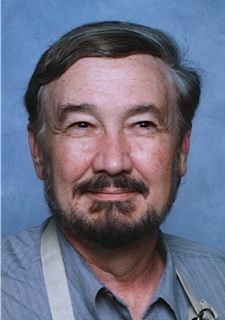By Greg Mills
Bit by bit more inside information is leaking out as to the various visions Steve Jobs had for Apple technology. The massive authorized book about Steve had a lot of insight into the grandiose directions he saw ahead for Apple. I read it on iPad, a fitting tribute to Steve Jobs. His life cut too short by cancer, it is hard to imagine the full spectrum of things he might have done if he lived to a ripe old age.
One news story that has recently hit the internet is that Jobs was thinking at one time of competing with the existing cellular networks using unlicensed spectrum. He would launch iPhone exclusively to work outside of AT&T, Verizon, T-Mobile and Sprint using Wi-Fi and other public free frequencies to connect iPhones to the internet and thus the telephone network.
As I mentioned in a previous blog Tony Fadel filed a patent that Apple recently received for reselling unused bandwidth Apple hoped to buy wholesale from the existing carriers. With a combination of wholesale purchases of unused minutes from the carriers and using a backbone on the Internet, Fadel thought Apple could launch an Apple "virtual cellular network" without building a single tower.
Since they had the hardware and know how, little stood in the way of Fadel's vision, but the cellular carriers were not so interested in selling those excess minutes to a potential competitor as Fadel thought.
This concept is based upon the reality that for there to be free bandwidth available when you want to make a call or use the Internet on a mobile device. There has to be some unused bandwidth available for you to use the very second you hit the call button. When there isn't any bandwidth open for use, you get the failure to connect message and have to try again.
All the cellular networks have extra bandwidth to always have just a bit more available than is being used, under ideal conditions. Fadel knew the wasted bandwidth was worth something to the networks and more to users who might be able to buy that extra cellular connect ability if Apple could buy it wholesale and sell it retail to you and me. Great ideas don't all happen to work, due to other issues.
It never happened, but things change, and while Fadel's patented reselling of wholesale minutes concept may never be used, the notion reinforces my thought that Apple ought to buy Sprint and fix it. The managment of Apple has certainly considered the potental of Apple creating its own cellular network.
At the time Fadel filed the patent application mentioned above and iPhone 1 was launched, Sprint stock was selling in the US$25 range and today it is selling in the $2.50 range. With a current market cap of about $8 billion the market cap then was roughly $80 billion. Apple didn't have a way to buy a major cellular network back then, but today they do. Apple has surged and Sprint is nearly bankrupt.
The profit alone on the $20 billion, four-year iPhone deal Apple has sold Sprint is enough to income for Apple to simply buy Sprint out, fire everyone who works for Sprint and fix the company, rebranded as "Apple Mobility." I suggest Apple offer Tony Fadel so much money to take over Sprint and fix it for Apple that he figures selling smart thermostats isn't a good use of his time.
Owning "Apple Mobility," its spectrum and cellular radio tower network would position Apple to support a lot of the digital download projects the company has in the works. I think Sprint rebranded As Apple Mobility would at least double in value the first week when the market considers the increased value simply due to Apple management taking over the floundering network.
While Apple has the cash on hand to buy Sprint out, creative ways to takeover a major company might conserve Apple's cash and still accomplish the goal Steve Jobs had of positioning Apple as the prime provider of digital downloaded content. It seems to me a pretty safe investment due to the valuable spectrum and build out tower network alone.
The major problem Sprint has very poor management. That is Greg's Bite.













